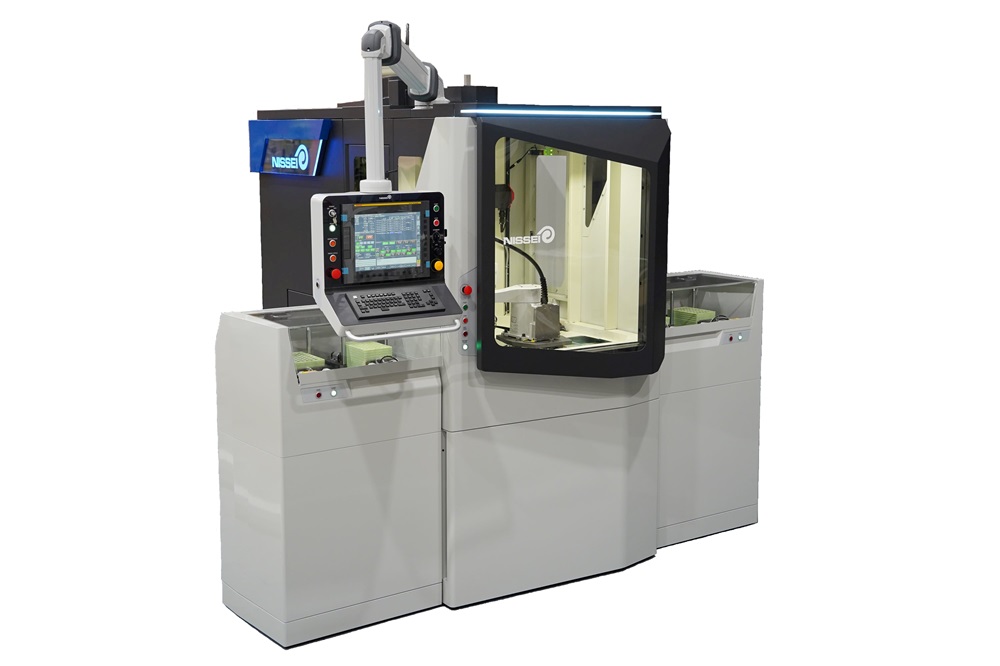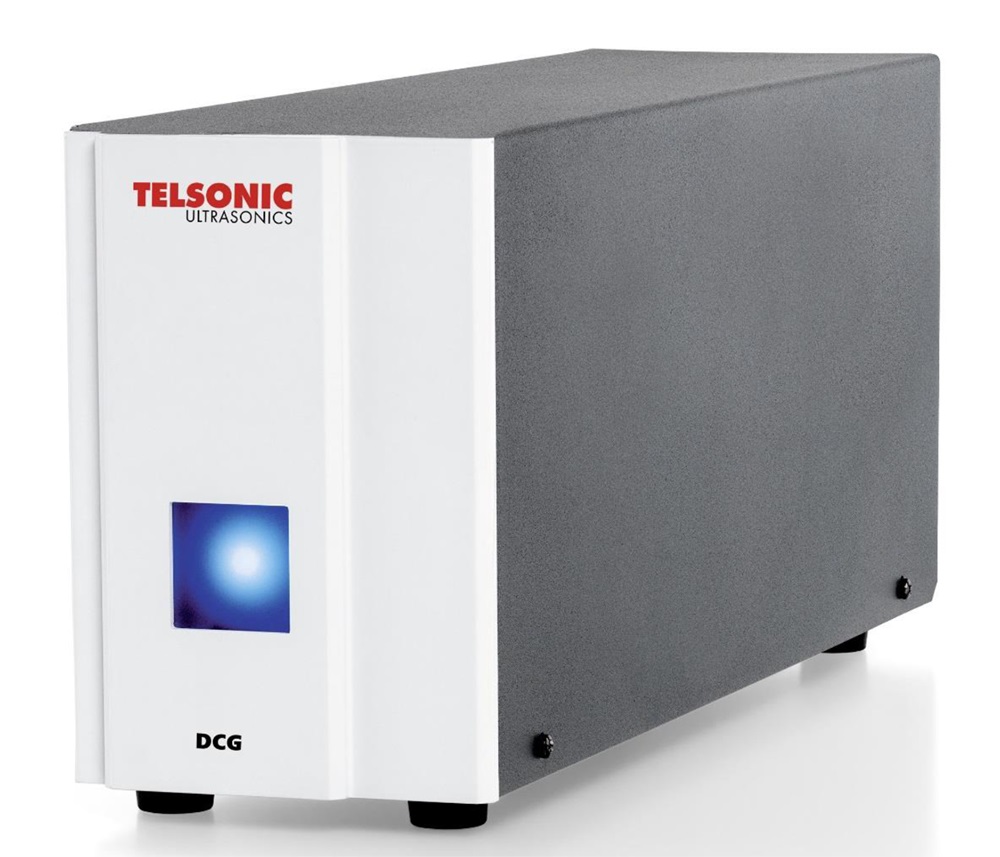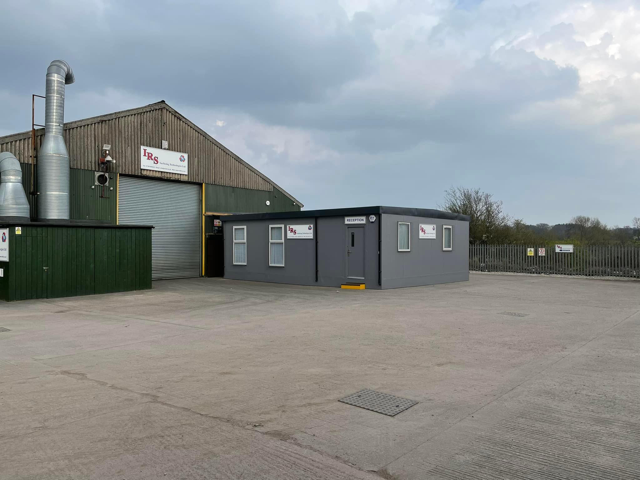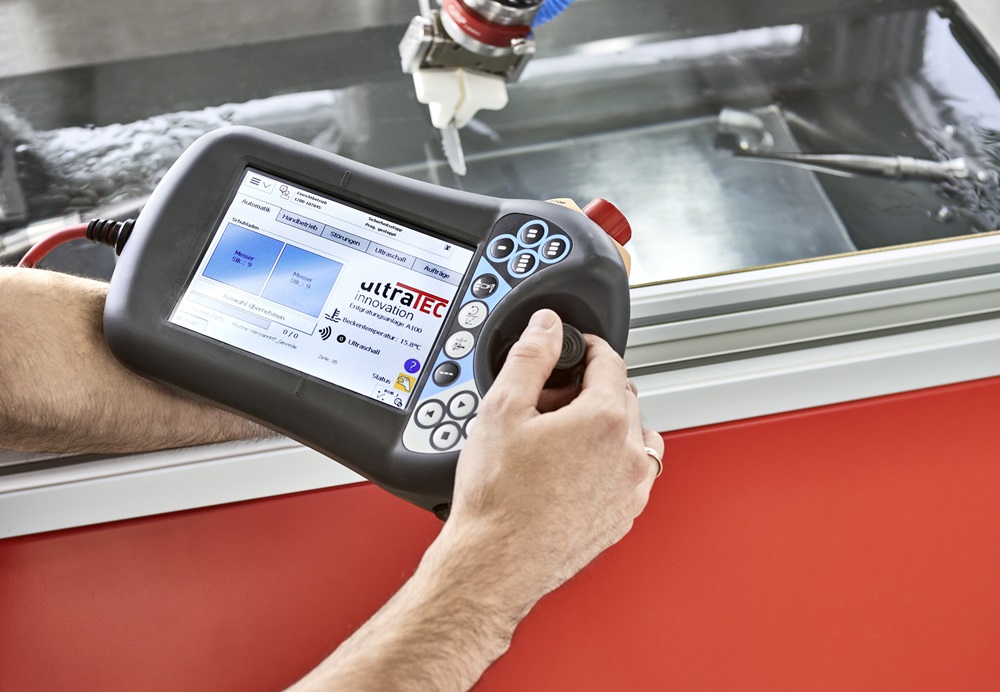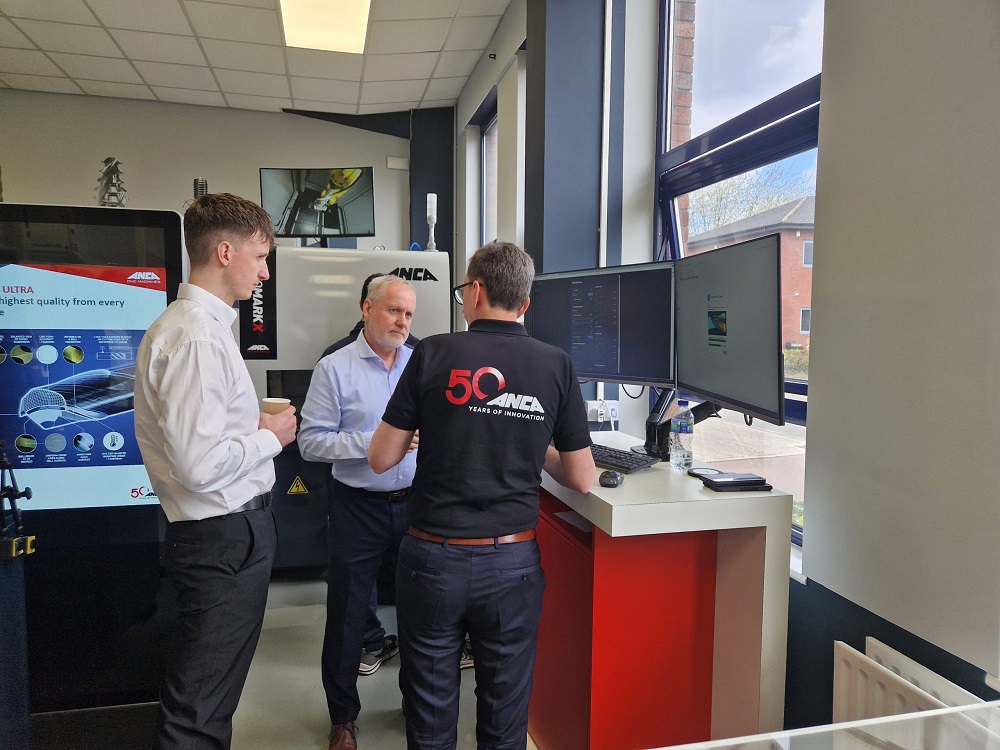Nissei Industry from Japan has been developing vertical and horizontal double-disc grinding machines for more than 40 years. Among other things, these machine concepts are for grinding hard materials, one of the company’s core applications in the Asian market. One specific application is the surface grinding of indexable inserts made of carbide, cermet or ceramic. Nissei presented a machine optimised for this purpose, the VP3-400RW, at the recent GrindingHub exhibition in Stuttgart, Germany.
When grinding indexable inserts, the demands on the mechanical and thermal stability of the processing machine are particularly high. The unit from Nissei has the corresponding rigidity, and this with a comparatively compact design. Thickness variations of the ground indexable inserts with capability values of Cp/Cpk of well over 4 are achievable with dimensions of 6.33 ±0.13 mm, for example.
As the main drives for the two 400 mm diameter diamond grinding wheels, the VP3-400RW contains two AC spindle motors delivering 15 kW each. The internal workpiece feeder, which has a 180° swivel function and linear oscillation, features AC servomotors for high dynamics and fast set-up.
The control of the VP3-400RW is by FANUC, allowing various machining modes such as simultaneous grinding of both sides of the workpiece or grinding of the sides one after the other, as well as grinding of only one side. It is possible to store and automatically call-up the respective machining parameters for different types of indexable inserts. Another important feature is the fully automatic dressing device, which can correct the shape on both grinding wheel surfaces simultaneously if necessary.
Nissei presented the VP3-400RW at GrindingHub as a co-operation partner of Nagel.
More information www.nagel.com






